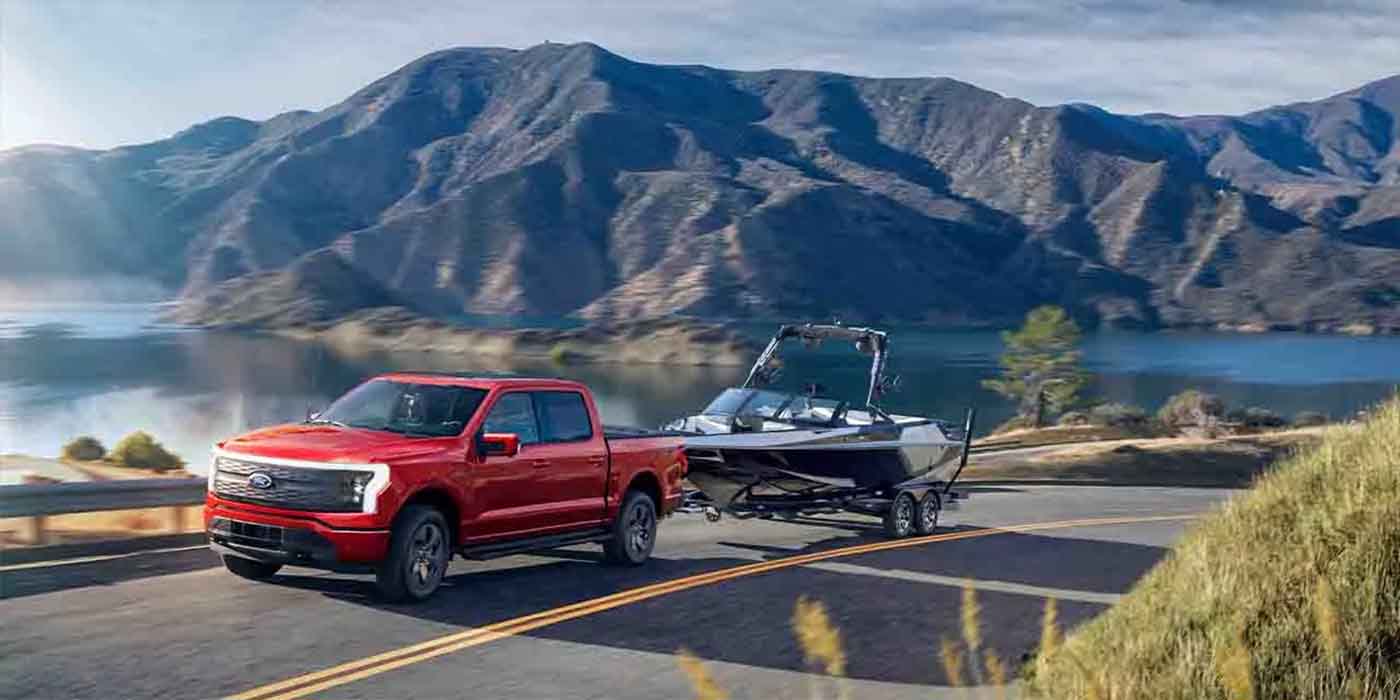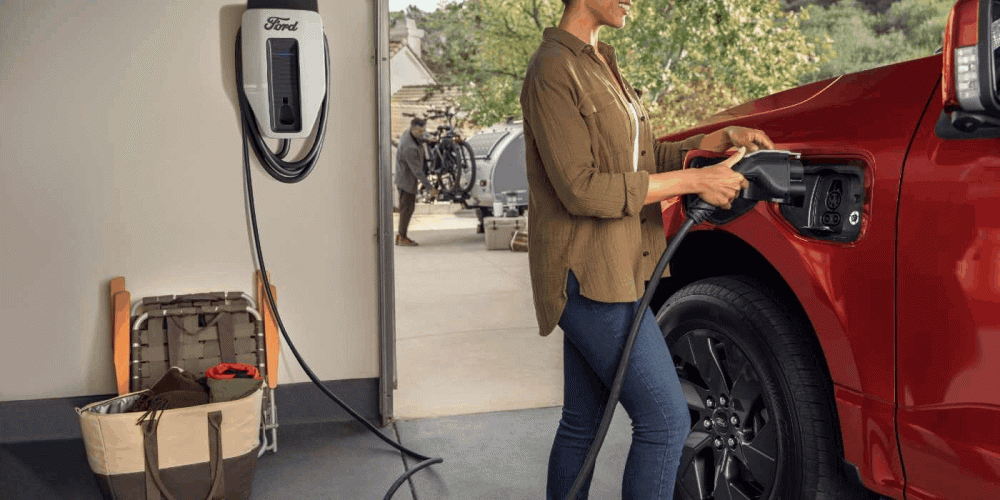
Ford and Duke Energy are planning to use F-150 Lightning batteries as backup energy storage to conserve energy use on the grid.
Duke Energy, one of the largest utility companies with over 7.4 million customers in the Carolinas, Florida, Ohia, Kentucky, and Indiana, is filing a petition for a new pilot program with the North Carolina Utilities Commission.
The new program intends to help lower vehicle lease payments for eligible EVs, including the Ford F-150 Lightning. Meanwhile, utility customers will be able to use energy from their EVs to give back to the grid.
The exchange will help stabilize the energy grid, helping to break the “EVs are bad for the grid” naysayers. New technology will allow for a two-way flow of energy to the EV and back to the grid.
The program will start in the Carolinas, where Duke supports around 2.1 million energy users. Duke Energy’s North Carolina president talks up the partnership, saying:
North Carolina is quickly becoming a magnet for EV manufacturers and suppliers, and innovative initiatives likes this will help make our state even more attractive to this thriving industry.
Duke Energy plans to test the program with up to 100 customers, leasing EVs such as the Ford F-150 Lightning.

Ford’s F-150 Lightning and Duke Energy supporting an electric future
Duke and Ford are unlocking the true potential behind EVs, particularly the Ford F-150 Lightning. The EV truck can store large amounts of energy, which makes it a perfect candidate for vehicle-to-grid (V2G) technology.
Supplying energy back to the grid can help ease demand during peak usage. Furthermore, it expands renewable energy usage by utilizing untapped power.
Ford’s Chief Policy Officer and General Counsel, Steven Croley, claims:
Ford’s electric vehicles are unlocking new possibilities in energy management for our customers, becoming valuable energy storage sources that are changing the game on the benefits an EV can deliver.
In addition, he adds:
Alongside Duke Energy, and our mutual customers, we’re working to fine-tune and expand these capabilities that will not only power their lives, but also accelerate the development of a less carbon-intensive grid.
Ford and Duke Energy are aggressively leading the charge for a sustainable future. For example, Ford announced the largest renewable energy purchase of its kind with DTE Energy last week, and Duke Energy is building a two-way smart grid to manage the flow of electricity from home to vehicle and back.
Electrek’s Take
One of the biggest arguments against owning an EV looks to be crumbling. With Ford and Duke Energy’s new partnership, EV owners can save money on utility costs while contributing to a more reliable grid.
This is likely the start of a new trend of two-way charging, as several EV charging companies are unlocking V2G technology to improve grid reliability and save energy.
The more the EV industry advances, the more technology advances around it, proving electric vehicles are at the center of a sustainable future. Ford and Duke Energy’s new partnership will hopefully be the first of many to incentivize V2G technology.
FTC: We use income earning auto affiliate links. More.



Comments